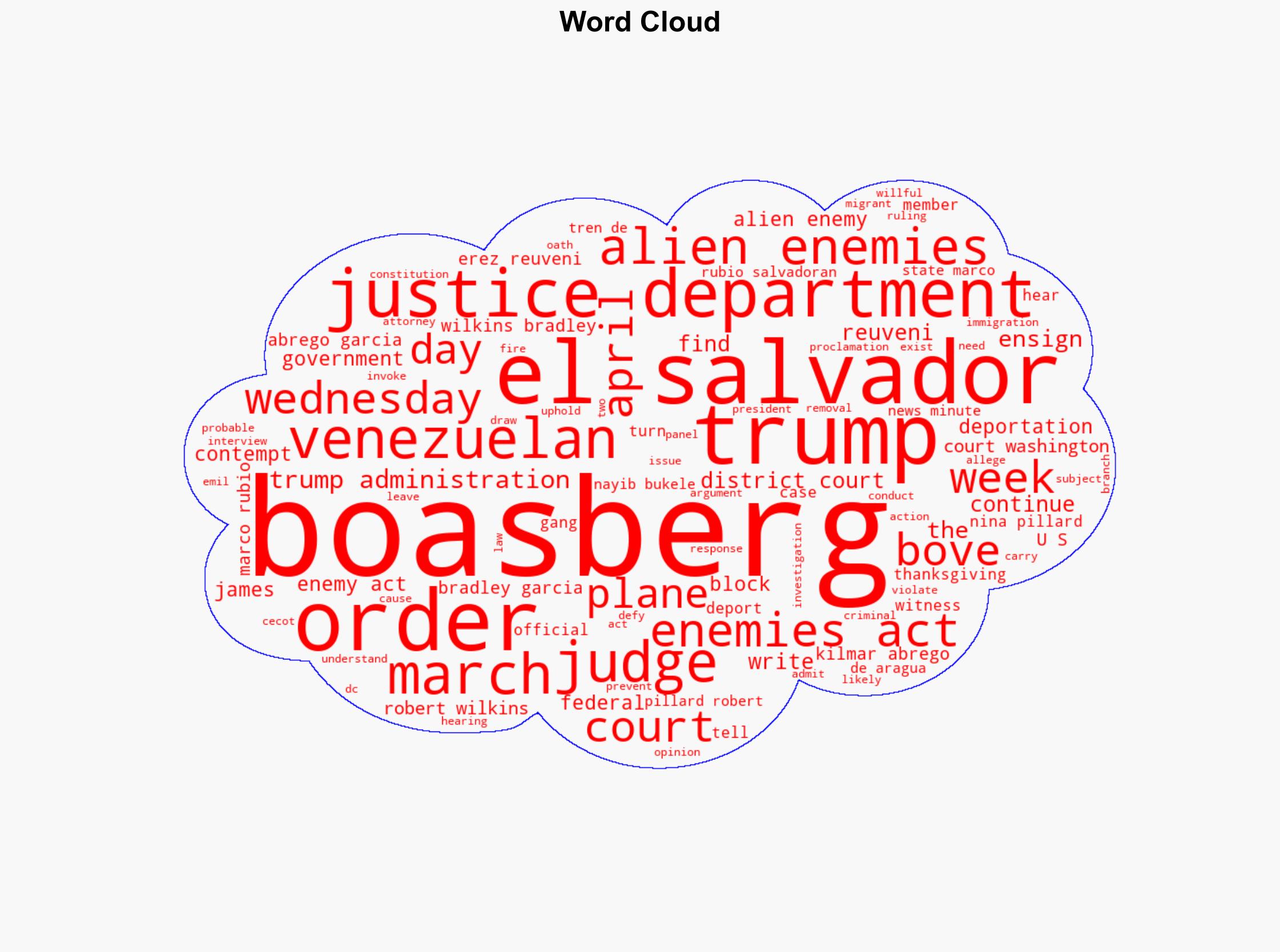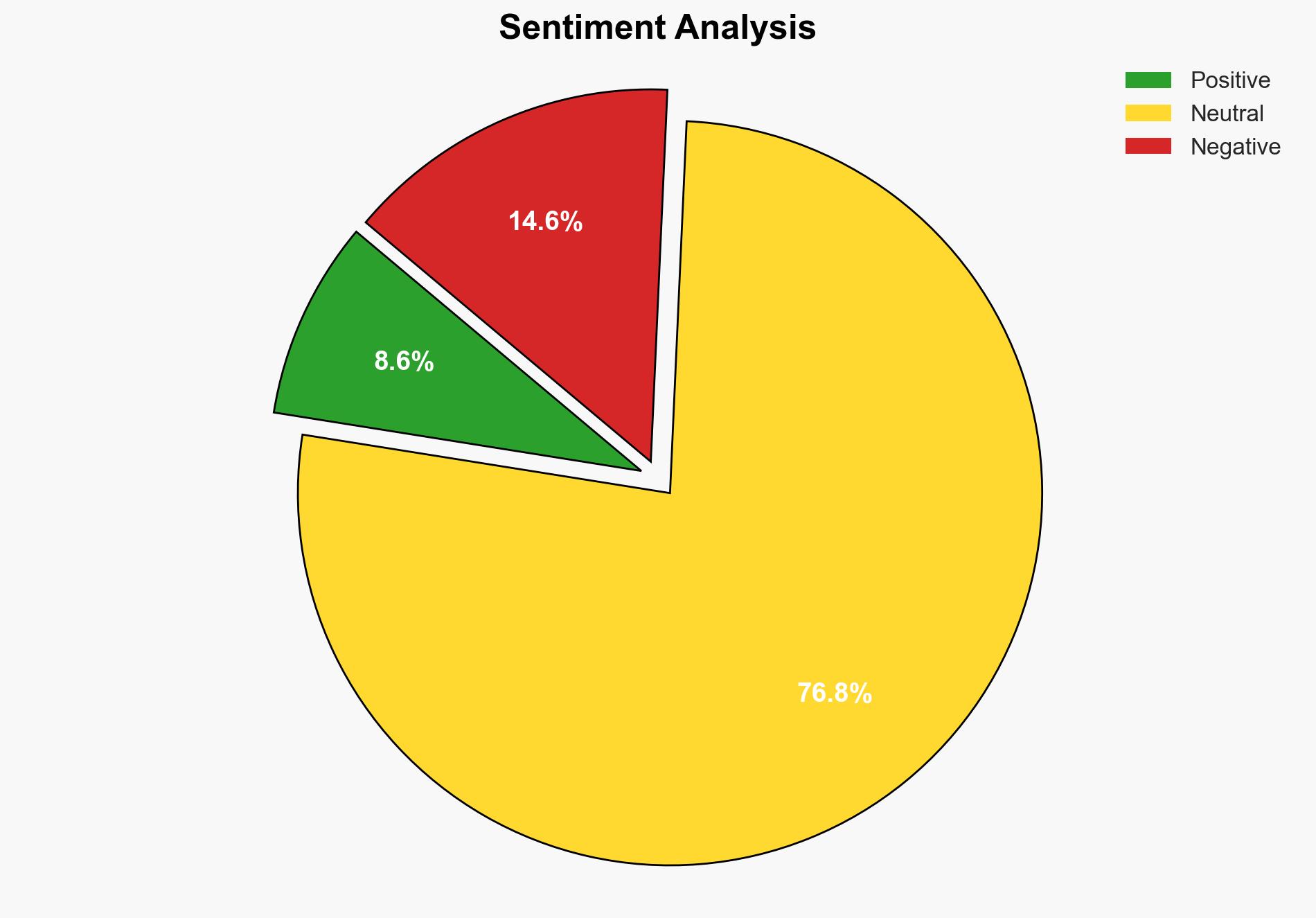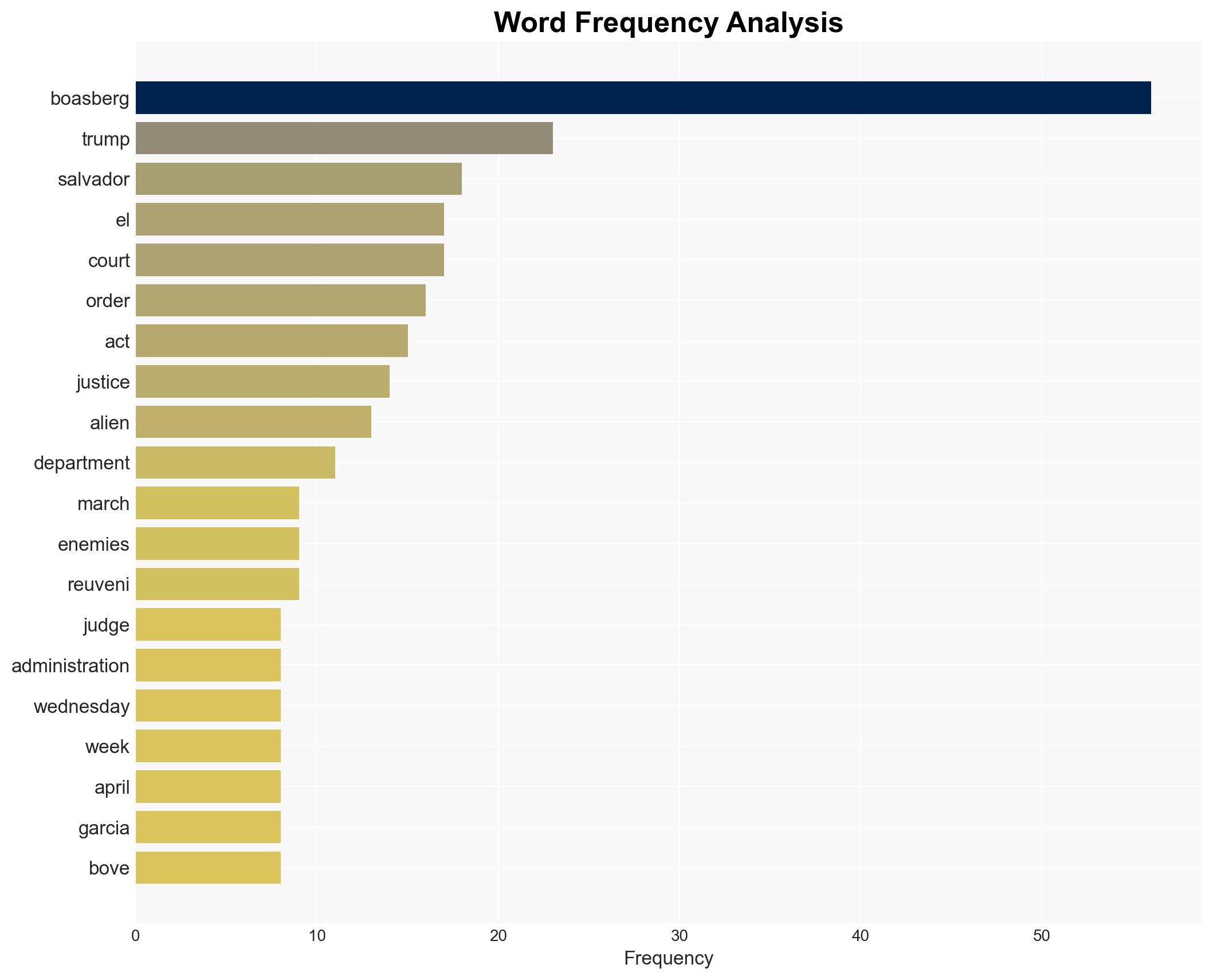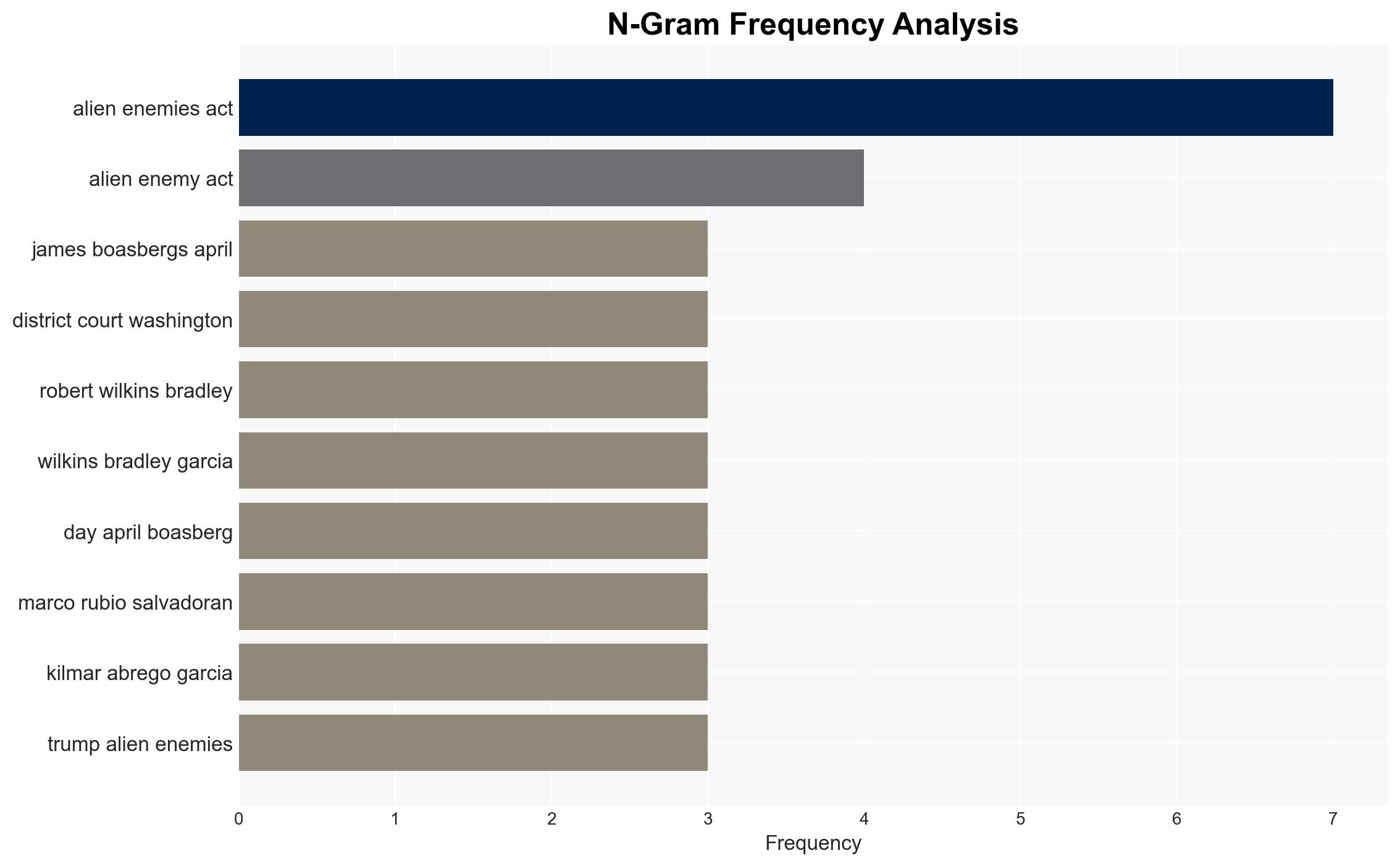Federal judge to resume contempt inquiry into Trump officials – CBS News
Published on: 2025-11-20
AI-powered OSINT brief from verified open sources. Automated NLP signal extraction with human verification. See our Methodology and Why WorldWideWatchers.
Intelligence Report:
1. BLUF (Bottom Line Up Front)
There is a moderate confidence level that the contempt inquiry into Trump officials will reveal significant procedural violations, potentially leading to legal repercussions for involved parties. The most supported hypothesis is that the Trump administration deliberately defied court orders to expedite deportations under the Alien Enemies Act. Recommended action includes monitoring legal proceedings closely and preparing for potential political fallout.
2. Competing Hypotheses
Hypothesis 1: The Trump administration deliberately defied court orders to expedite deportations under the Alien Enemies Act, prioritizing immigration policy goals over legal compliance.
Hypothesis 2: The Trump administration’s actions were a result of miscommunication or misunderstanding of the legal orders, rather than intentional defiance.
Hypothesis 1 is more likely due to the documented instances of officials indicating awareness of the court orders and proceeding with deportations regardless. The joint opinion by judges suggests a pattern of willful disobedience, supporting the first hypothesis.
3. Key Assumptions and Red Flags
Assumptions: It is assumed that the court orders were clear and unambiguous, and that all relevant officials were adequately informed of these orders.
Red Flags: The boastful remarks by officials and the swift deportation actions suggest potential deliberate defiance. The lack of immediate corrective action by the Justice Department raises questions about internal compliance mechanisms.
Deception Indicators: Public statements by officials that contradict internal communications or actions could indicate attempts to mislead or downplay the situation.
4. Implications and Strategic Risks
The inquiry could lead to significant legal and political repercussions for former Trump officials, potentially affecting their future political careers. The case may also set a precedent for how executive orders are balanced against judicial authority, impacting future administrations. Escalation scenarios include increased political polarization and potential civil unrest if the inquiry is perceived as politically motivated.
5. Recommendations and Outlook
- Monitor the legal proceedings closely for developments that could impact national security or political stability.
- Prepare communication strategies to address potential public backlash or misinformation campaigns.
- Best-case scenario: The inquiry resolves without significant political fallout, reinforcing judicial authority.
- Worst-case scenario: The inquiry leads to heightened political tensions and undermines public trust in judicial processes.
- Most-likely scenario: Legal proceedings continue with moderate political impact, leading to increased scrutiny of immigration policies.
6. Key Individuals and Entities
James Boasberg, Marco Rubio, Nayib Bukele, Erez Reuveni, Emil Bove.
7. Thematic Tags
Structured Analytic Techniques Applied
- Cognitive Bias Stress Test: Expose and correct potential biases in assessments through red-teaming and structured challenge.
- Bayesian Scenario Modeling: Use probabilistic forecasting for conflict trajectories or escalation likelihood.
- Network Influence Mapping: Map relationships between state and non-state actors for impact estimation.
Explore more:
National Security Threats Briefs ·
Daily Summary ·
Support us





